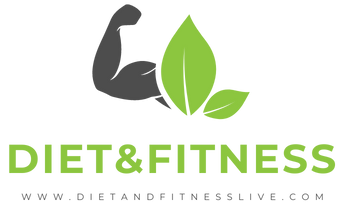
The Ketone Diet: A Comprehensive Guide to Achieving Optimal Health and Fitness
The Ketone Diet has been gaining popularity in recent years as a way to achieve optimal health and fitness. This diet is based on the principle of consuming high amounts of healthy fats, moderate amounts of protein, and very low amounts of carbohydrates. The goal of the Ketone Diet is to induce a state of ketosis, in which the body burns fat for fuel instead of glucose. In this article, we will provide a comprehensive guide to the Ketone Diet, including its benefits, potential risks, and tips for successful implementation.
- What is the Ketone Diet?
- Benefits of the Ketone Diet
- Potential Risks of the Ketone Diet
- How to Implement the Ketone Diet
- Foods to Eat on the Ketone Diet
- Foods to Avoid on the Ketone Diet
- Tips for Success on the Ketone Diet
- Exercise and the Ketone Diet
- Ketone Supplements
- Conclusion
What is the Ketone Diet?
The Ketone Diet is a low-carbohydrate, high-fat diet that has been used for decades to treat epilepsy in children. The diet is based on the principle of inducing a state of ketosis, in which the body burns fat for fuel instead of glucose. This is achieved by consuming high amounts of healthy fats, moderate amounts of protein, and very low amounts of carbohydrates.
Benefits of the Ketone Diet
The Ketone Diet has been shown to have numerous health benefits, including weight loss, improved blood sugar control, and reduced risk of heart disease. The diet has also been used to treat epilepsy, Alzheimer’s disease, and Parkinson’s disease.
Potential Risks of the Ketone Diet
While the Ketone Diet has many potential benefits, it is not without risks. Some people may experience side effects such as constipation, bad breath, and fatigue. In addition, the diet may not be suitable for people with certain medical conditions, such as liver or kidney disease.
How to Implement the Ketone Diet
To successfully implement the Ketone Diet, it is important to gradually reduce your intake of carbohydrates and increase your intake of healthy fats. You should also ensure that you are consuming enough protein to support your body’s needs. It is recommended to work with a healthcare professional or registered dietitian to ensure that you are meeting your nutritional needs.
Foods to Eat on the Ketone Diet
The Ketone Diet emphasizes healthy fats, such as avocados, nuts, and olive oil, as well as protein sources like meat, fish, and eggs. Low-carbohydrate vegetables, such as spinach and broccoli, are also allowed on the diet.
Foods to Avoid on the Ketone Diet
On the Ketone Diet, it is important to avoid high-carbohydrate foods such as bread, pasta, and sugary snacks. You should also limit your intake of fruits and starchy vegetables, such as potatoes and corn.
Tips for Success on the Ketone Diet
To be successful on the Ketone Diet, it is important to plan your meals ahead of time and have healthy snacks on hand. You should also stay hydrated and listen to your body’s hunger and fullness cues.
Exercise and the Ketone Diet
Exercise is an important component of any healthy lifestyle, and it can be especially beneficial when following the Ketone Diet. Exercise can help to improve insulin sensitivity and promote weight loss. It is important to consult with a healthcare professional before starting a new exercise program.
Ketone Supplements
Ketone supplements, such as exogenous ketones and MCT oil, are becoming increasingly popular among people following the Ketone Diet. While these supplements may provide some benefits, they are not a substitute for following a healthy diet and exercise routine.
Conclusion
The Ketone Diet can be a powerful tool for achieving optimal health and fitness. By following the principles of the diet and working with a healthcare professional, you can reap the many benefits of this approach to nutrition. Remember to listen to your body and make adjustments as needed to ensure that you are achieving your health and fitness goals.






